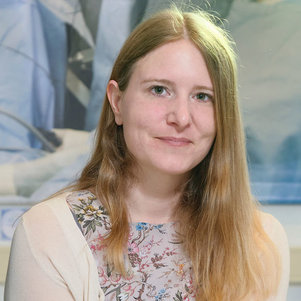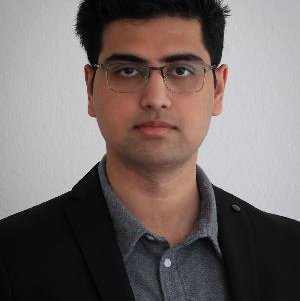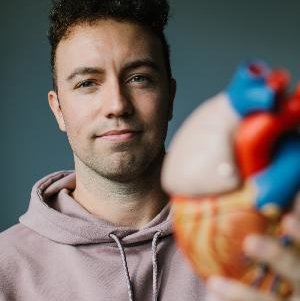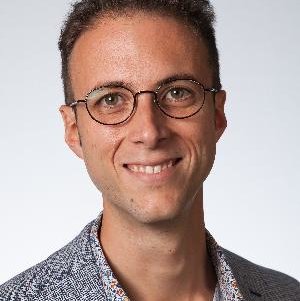Four 3mE researchers receive Veni grant
TU Delft receives a total of 17 Venis, 4 of which are awarded to researchers at the 3mE faculty. These are Aimée Sakes, Sid Kumar, Cosimo Della Santina and Mathias Peirlinck. The funds will be used for a variety of research projects, from giving robots the intelligence to handle deformable objects to a catheter that ensures safer minimal invasive heart surgery.
Vibrating through the vasculature
During minimal invasive heart surgery, a catheter is inserted into a patient’s blood vessel. Current catheter technology has low friction with the blood vessel wall, which is advantageous during insertion and removal, but disadvantageous during the intervention itself. A catheter should be able to hold a position inside the heart and applying forces during the procedure. “With this Veni, I aim to develop a catheter which is able to adjust its functional properties on the fly using high-frequency vibrations,” says Aimée Sakes. The envisioned catheter can switch between a high-friction mode for atraumatic anchoring and a low-friction mode for easy insertion and removal. “In this way, I hope to make minimal invasive heart surgery safer and more reliable in the near future.”
Greener metals
New sustainable metals are on the horizon. “Examples are greener steel alloys and alternative structural metals such as magnesium,” says Sid Kumar. “But it could take several years before commercial and societal adoption.” That is the result of the complex interplay of microstructural mechanics and processing conditions, each vastly different across various metallic systems. To accelerate their adoption, Kumar wants to develop a machine learning framework to efficiently model the microstructural mechanics of different metallic systems. “I’m very happy with the Veni award and very grateful for the support of my team,” Kumar says. “This award propels my research on AI-driven design of metallic systems, bringing us one step closer to the design of sustainable materials.”
Uncovering cardiac failure
The average human heart beats 3 billion times in a lifetime. For heart failure patients, this is unfortunately not the case. To increase our understanding on the mechanisms driving heart failure, Mathias Peirlinck, will investigate heart tissue both experimentally and virtually. Based on microscopy, force recordings, computational models and machine learning techniques, he will explore the relationships between cardiac tissue microstructure and the mechanical function of the heart. “I want to predict how structural tissue changes affect the performance of the human heart”, says Peirlinck. “These insights are crucial to better understand and identify chronic heart failure and ultimately develop innovative and personalised treatment techniques to fight this deadly disease.”
Robots handling deformable objects
Robots’ penetration in the human environment is hindered. According to Cosimo Della Santina, this is because robots are still unable to manipulate the vast range of objects we are used to interacting with within our daily lives. For example, robots struggle with mundane tasks like filling up a car at a gas station or untangling two cables. This is because all these tasks involve manipulating deformable objects. “Within the ROSES project, I will uncover the principles behind this and hope to ultimately equip robots with the intelligence necessary to touch and modify their surroundings reliably,” says Della Santina. “What I am very excited about is that ROSES concerns fundamental research with direct real-world applications, ranging from agriculture to space exploration.”



